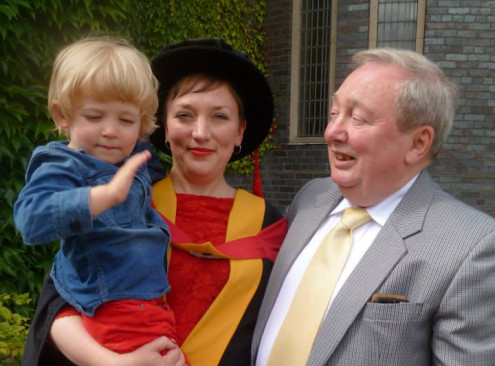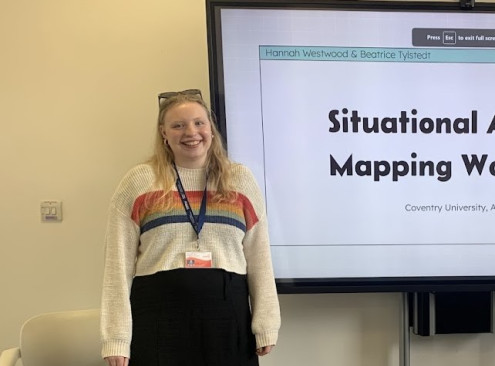© Pint of Science, 2025. All rights reserved.
Hard Lessons, Curious Minds: Sociology in a High-Security Prison
Emily Gray
(Assistant Professor, University of Warwick)
This talk brings together four criminologists and sociologists who’ve swapped lecture halls for the far less predictable classrooms of a high-security prison. Teaching sociology in this setting has been both eye-opening and eyebrow-raising, offering moments of profound insight alongside the occasional quip about how "deviance" takes on new meaning when discussed with a roomful of men on long sentences. We'll share the challenges and surprises of bringing academia behind bars, where debates about power and inequality can get very real, very quickly. As researchers passionate about education, the arts, and prison reform, we’ll also reflect on our own emotional rollercoaster—from moments of connection and clarity to those awkwardly self-aware realisations of our own privilege. Our personal motivations for working in this field—part curiosity, part hope —add another layer to our reflections. Finally, we’ll explore how creative practices, from poetry to painting, can complement traditional education, sparking surprising moments of empowerment and expression. Join us as we consider how sociology, art, and a sense of humour can foster critical thinking, self-reflection, and the occasional laugh in even the most serious of environments.

What on earth is wellness? How social media health trends promote misinformation online
Hannah Westwood
(PhD Researcher, Coventry University)
‘Wellness’ is a catch-all term that broadly relates to good mental and physical health, and a sense of being “in tune” with one’s body. The term is often used on social media in relation to other trends such as clean eating, clean beauty and natural remedies. As a growing number of us turn to social media for health advice, this talk discusses how the term wellness has become co-opted by brands and influencers in order to spread health misinformation and sell expensive and sometimes unregulated products online. I use the specific example of natural birth control from my research, showing how it has grown in popularity in the wellness space as an alternative to hormonal contraception, which has been dismissed as harmful and risky. The talk will show how such social media trends can spread health misinformation online, and the potential consequences of this, such as increased conception and abortion rates. I show how fearmongering tactics are used to denounce anything that is not considered natural under the guise of health and wellness advice, and discuss how we can think more critically about social media messaging in general.

Map data © OpenStreetMap contributors.
